deepthroat@gloomynews さんのツイートです。
――小野田寛郎さん死去、NYtimes紙が追悼記事。小野田さんの帰還は当時の日本人に「戦後の繁栄と物質主義の台頭の中に失くしていた尊厳を奮い立たせた」http://www.nytimes.com/2014/01/18/world/asia/hiroo-onoda-imperial-japanese-army-officer-dies-at-91.html?partner=rss&emc=rss&smid=tw-nytimes&_r=0 … ※全ては永遠に失われた。でも記憶だけは残したい。――。
ニューヨークタイムズが
大きく、
小野田さん死去を報じています(〔資料-1〕参照)。
確かに、
ルバング島から帰還当時、
日本中、
衝撃が走った事件でした。

出典:Thoton News Japan@Thotonさんのツイート〔12:14 - 2014年1月17日〕
参考までに、
朝日の報道を資料-2として
転載しておきました。
〔資料-1〕
「Hiroo Onoda, Soldier Who Hid in Jungle for Decades, Dies at 91」
NYtimes :By ROBERT D. McFADDENJAN. (JAN. 17, 2014 )
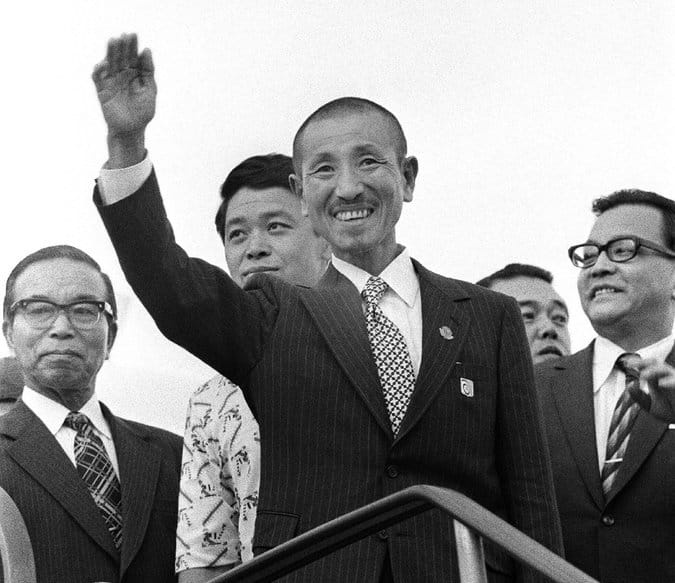
Hiroo Onoda, in March of 1974, arrived to a hero's welcome in Tokyo after living for 29 years in a Philippine jungle. Jiji Press/Agence France-Presse — Getty Images
Hiroo Onoda, an Imperial Japanese Army officer who remained at his jungle post on an island in the Philippines for 29 years, refusing to believe that World War II was over, and returned to a hero’s welcome in the all but unrecognizable Japan of 1974, died Thursday at a Tokyo hospital, the Japanese government said. He was 91.
Caught in a time warp, Mr. Onoda, a second lieutenant, was one of the war’s last holdouts: a soldier who believed the emperor was a deity and the war a sacred mission; who survived on bananas and coconuts and sometimes killed villagers he assumed were enemies; who finally went home to the lotus land of paper and wood that turned out to be a futuristic world of skyscrapers, television, jet planes, pollution and atomic destruction.
Japanese history and literature are replete with heroes who have remained loyal to a cause, especially if it is lost or hopeless, and Lieutenant Onoda, a small, wiry man of dignified manner and military bearing, seemed to many like a samurai of old, offering his sword as a gesture of surrender to President Ferdinand E. Marcos of the Philippines, who returned it to him.

Mr. Onoda, pictured in 1996 in Manila, holds a photo of himself that was taken when he surrendered in the Philippines. Bullit Marquez/Associated Press
And his homecoming, with roaring crowds, celebratory parades and speeches by public officials, stirred his nation with a pride that many Japanese had found lacking in postwar years of rising prosperity and materialism. His ordeal of deprivation may have seemed a pointless waste to much of the world, but in Japan it was a moving reminder of the redemptive qualities of duty and perseverance.
It happened with a simple command. As related in a memoir after he came home, Lieutenant Onoda’s last order in early 1945 was to stay and fight. Loyal to a military code that taught that death was preferable to surrender, he remained behind on Lubang Island, 93 miles southwest of Manila, when Japanese forces withdrew in the face of an American invasion.
After Japan surrendered in August, thousands of Japanese soldiers were scattered across China, Southeast Asia and the Western Pacific. Many stragglers were captured or went home, while hundreds went into hiding rather than surrender or commit suicide. Many died of starvation or sickness. A few survivors refused to believe the dropped leaflets and radio announcements saying the war had been lost.
Lieutenant Onoda, an intelligence officer trained in guerrilla tactics, and three enlisted men with him found leaflets proclaiming the war’s end, but believed they were enemy propaganda tricks. They built bamboo huts; ate bananas, coconuts and rice pilfered from a village, and killed cows for meat. Tormented by tropical heat, rats and mosquitoes, they patched their uniforms and kept their rifles in working order.
Considering themselves at war, they evaded American and Filipino search parties and attacked islanders they took to be enemy guerrillas; about 30 inhabitants were killed in skirmishes with the Japanese over the years. One of the enlisted men surrendered to Filipino forces in 1950, and two others were shot dead, one in 1954 and another in 1972, by island police officers searching for the renegades.
The last holdout, Lieutenant Onoda — officially declared dead in 1959 — was found by Norio Suzuki, a student searching for him in 1974. The lieutenant rejected his pleas to go home, insisting he was still awaiting orders. Mr. Suzuki returned with photographs, and the Japanese government sent a delegation, including the lieutenant’s brother and his former commander, to formally relieve him of duty.
“I am sorry I have disturbed you for so long a time,” Lieutenant Onoda told his brother, Toshiro.
In Manila, the lieutenant, wearing his tattered uniform, presented his sword to President Marcos, who pardoned him for crimes committed while he thought he was at war.
He was already a national hero when he arrived in Tokyo. He was met by his aging parents and huge flag-waving crowds with an outpouring of emotion. More than patriotism or admiration for his grit, his jungle saga, which had dominated the news in Japan for days, evoked waves of nostalgia and melancholy in a people searching for deeper meaning in their growing postwar affluence.
The 52-year-old lieutenant — a ghost from the past in a new blue suit, close-cropped military haircut and wispy mustache and chin whiskers — spoke earnestly of duty, and seemed to personify a devotion to traditional values that many Japanese thought had been lost.
“I was fortunate that I could devote myself to my duty in my young and vigorous years,” he said. Asked what had been on his mind all those years in the jungle, he said: “Nothing but accomplishing my duty.”
In an editorial, The Mainichi Shimbun, a leading Tokyo newspaper, said: “To this soldier, duty took precedence over personal sentiments. Onoda has shown us that there is much more in life than just material affluence and selfish pursuits. There is the spiritual aspect, something we may have forgotten.”
After his national welcome in Japan, Mr. Onoda was examined by doctors, who found him in amazingly good condition. He was given a military pension and signed a $160,000 contract for a ghostwritten memoir, “No Surrender: My Thirty Year War.” As his story went global in books, articles and documentaries, he tried to lead a normal life.
He went dancing, took driving lessons and traveled up and down the Japanese islands. But he found himself a stranger in a strange land, disillusioned with materialism and overwhelmed by changes. “There are so many tall buildings and automobiles in Tokyo,” he said. “Television might be convenient, but it has no influence on my life here.”
In 1975, he moved to a Japanese colony in São Paulo, Brazil, raised cattle and in 1976 married Machie Onuku, a Japanese tea-ceremony teacher. In 1984, the couple returned to Japan and founded the Onoda Nature School, a survival-skills youth camp. In 1996, he revisited Lubang and gave $10,000 to a school. In recent years, he lived in Japan and Brazil, where he was made an honorary citizen in 2010.
Hiroo Onoda was born on March 19, 1922, in Kainan, Wakayama, in central Japan, one of seven children of Tanejiro and Tamae Onoda. At 17, he went to work for a trading company in Wuhan, China, which Japanese forces occupied in 1938. In 1942, he joined the Japanese Army, was singled out for special training and attended Nakano School, the army’s training center for intelligence officers. He studied guerrilla warfare, philosophy, history, martial arts, propaganda and covert operations.
In late December 1944, he was sent to Lubang, a strategic island 16 miles long and 6 miles wide on the southwestern approach to Manila Bay and the island of Corregidor, with orders to sabotage harbor installations and an airstrip to disrupt a coming American invasion. But superior officers on the island superseded those orders to focus on preparations for a Japanese evacuation.
When American forces landed on Feb. 28, 1945, and the last Japanese fled or were killed, Maj. Yoshimi Taniguchi gave Lieutenant Onoda his final orders, to stand and fight. “It may take three years, it may take five, but whatever happens we’ll come back for you,” the major promised.
Twenty-nine years later, the retired major, by then a bookseller, returned to Lubang at Tokyo’s request to fulfill his promise. Japan had lost the war, he said, and the lieutenant was relieved of duty. The ragged soldier saluted and wept.
〔資料-2〕
「元陸軍少尉の小野田寛郎さん死去 ルバング島から帰還」
朝日新聞デジ(2014年1月17日11時54分)
☆ 記事URL:http://www.asahi.com/articles/ASG1K2W9RG1KPXLB119.html
フィリピン・ルバング島のジャングルで、太平洋戦争終了後も29年間、潜伏し、生還した元陸軍少尉の小野田寛郎(おのだ・ひろお)さんが16日午後4時29分、東京都内の病院で死去した。91歳だった。6日から肺炎のため入院していた。葬儀は未定だが、近親者で執り行う予定。
小野田寛郎さん死去
1922年3月、和歌山県の旧内海町(現・海南市名高)に生まれた。44年に陸軍中野学校二俣分校に入り、ゲリラ戦や情報戦を学んだ後、ルバング島に派遣された。
45年には終戦を知らせる米軍のビラを目にしていたが、内容や日本語が不正確だったため、米軍の謀略と判断。終戦を信じずにゲリラ戦を継続した。
続きを読む(会員の方)
――小野田寛郎さん死去、NYtimes紙が追悼記事。小野田さんの帰還は当時の日本人に「戦後の繁栄と物質主義の台頭の中に失くしていた尊厳を奮い立たせた」http://www.nytimes.com/2014/01/18/world/asia/hiroo-onoda-imperial-japanese-army-officer-dies-at-91.html?partner=rss&emc=rss&smid=tw-nytimes&_r=0 … ※全ては永遠に失われた。でも記憶だけは残したい。――。
ニューヨークタイムズが
大きく、
小野田さん死去を報じています(〔資料-1〕参照)。
確かに、
ルバング島から帰還当時、
日本中、
衝撃が走った事件でした。

出典:Thoton News Japan@Thotonさんのツイート〔12:14 - 2014年1月17日〕
参考までに、
朝日の報道を資料-2として
転載しておきました。
〔資料-1〕
「Hiroo Onoda, Soldier Who Hid in Jungle for Decades, Dies at 91」
NYtimes :By ROBERT D. McFADDENJAN. (JAN. 17, 2014 )

Hiroo Onoda, in March of 1974, arrived to a hero's welcome in Tokyo after living for 29 years in a Philippine jungle. Jiji Press/Agence France-Presse — Getty Images
Hiroo Onoda, an Imperial Japanese Army officer who remained at his jungle post on an island in the Philippines for 29 years, refusing to believe that World War II was over, and returned to a hero’s welcome in the all but unrecognizable Japan of 1974, died Thursday at a Tokyo hospital, the Japanese government said. He was 91.
Caught in a time warp, Mr. Onoda, a second lieutenant, was one of the war’s last holdouts: a soldier who believed the emperor was a deity and the war a sacred mission; who survived on bananas and coconuts and sometimes killed villagers he assumed were enemies; who finally went home to the lotus land of paper and wood that turned out to be a futuristic world of skyscrapers, television, jet planes, pollution and atomic destruction.
Japanese history and literature are replete with heroes who have remained loyal to a cause, especially if it is lost or hopeless, and Lieutenant Onoda, a small, wiry man of dignified manner and military bearing, seemed to many like a samurai of old, offering his sword as a gesture of surrender to President Ferdinand E. Marcos of the Philippines, who returned it to him.

Mr. Onoda, pictured in 1996 in Manila, holds a photo of himself that was taken when he surrendered in the Philippines. Bullit Marquez/Associated Press
And his homecoming, with roaring crowds, celebratory parades and speeches by public officials, stirred his nation with a pride that many Japanese had found lacking in postwar years of rising prosperity and materialism. His ordeal of deprivation may have seemed a pointless waste to much of the world, but in Japan it was a moving reminder of the redemptive qualities of duty and perseverance.
It happened with a simple command. As related in a memoir after he came home, Lieutenant Onoda’s last order in early 1945 was to stay and fight. Loyal to a military code that taught that death was preferable to surrender, he remained behind on Lubang Island, 93 miles southwest of Manila, when Japanese forces withdrew in the face of an American invasion.
After Japan surrendered in August, thousands of Japanese soldiers were scattered across China, Southeast Asia and the Western Pacific. Many stragglers were captured or went home, while hundreds went into hiding rather than surrender or commit suicide. Many died of starvation or sickness. A few survivors refused to believe the dropped leaflets and radio announcements saying the war had been lost.
Lieutenant Onoda, an intelligence officer trained in guerrilla tactics, and three enlisted men with him found leaflets proclaiming the war’s end, but believed they were enemy propaganda tricks. They built bamboo huts; ate bananas, coconuts and rice pilfered from a village, and killed cows for meat. Tormented by tropical heat, rats and mosquitoes, they patched their uniforms and kept their rifles in working order.
Considering themselves at war, they evaded American and Filipino search parties and attacked islanders they took to be enemy guerrillas; about 30 inhabitants were killed in skirmishes with the Japanese over the years. One of the enlisted men surrendered to Filipino forces in 1950, and two others were shot dead, one in 1954 and another in 1972, by island police officers searching for the renegades.
The last holdout, Lieutenant Onoda — officially declared dead in 1959 — was found by Norio Suzuki, a student searching for him in 1974. The lieutenant rejected his pleas to go home, insisting he was still awaiting orders. Mr. Suzuki returned with photographs, and the Japanese government sent a delegation, including the lieutenant’s brother and his former commander, to formally relieve him of duty.
“I am sorry I have disturbed you for so long a time,” Lieutenant Onoda told his brother, Toshiro.
In Manila, the lieutenant, wearing his tattered uniform, presented his sword to President Marcos, who pardoned him for crimes committed while he thought he was at war.
He was already a national hero when he arrived in Tokyo. He was met by his aging parents and huge flag-waving crowds with an outpouring of emotion. More than patriotism or admiration for his grit, his jungle saga, which had dominated the news in Japan for days, evoked waves of nostalgia and melancholy in a people searching for deeper meaning in their growing postwar affluence.
The 52-year-old lieutenant — a ghost from the past in a new blue suit, close-cropped military haircut and wispy mustache and chin whiskers — spoke earnestly of duty, and seemed to personify a devotion to traditional values that many Japanese thought had been lost.
“I was fortunate that I could devote myself to my duty in my young and vigorous years,” he said. Asked what had been on his mind all those years in the jungle, he said: “Nothing but accomplishing my duty.”
In an editorial, The Mainichi Shimbun, a leading Tokyo newspaper, said: “To this soldier, duty took precedence over personal sentiments. Onoda has shown us that there is much more in life than just material affluence and selfish pursuits. There is the spiritual aspect, something we may have forgotten.”
After his national welcome in Japan, Mr. Onoda was examined by doctors, who found him in amazingly good condition. He was given a military pension and signed a $160,000 contract for a ghostwritten memoir, “No Surrender: My Thirty Year War.” As his story went global in books, articles and documentaries, he tried to lead a normal life.
He went dancing, took driving lessons and traveled up and down the Japanese islands. But he found himself a stranger in a strange land, disillusioned with materialism and overwhelmed by changes. “There are so many tall buildings and automobiles in Tokyo,” he said. “Television might be convenient, but it has no influence on my life here.”
In 1975, he moved to a Japanese colony in São Paulo, Brazil, raised cattle and in 1976 married Machie Onuku, a Japanese tea-ceremony teacher. In 1984, the couple returned to Japan and founded the Onoda Nature School, a survival-skills youth camp. In 1996, he revisited Lubang and gave $10,000 to a school. In recent years, he lived in Japan and Brazil, where he was made an honorary citizen in 2010.
Hiroo Onoda was born on March 19, 1922, in Kainan, Wakayama, in central Japan, one of seven children of Tanejiro and Tamae Onoda. At 17, he went to work for a trading company in Wuhan, China, which Japanese forces occupied in 1938. In 1942, he joined the Japanese Army, was singled out for special training and attended Nakano School, the army’s training center for intelligence officers. He studied guerrilla warfare, philosophy, history, martial arts, propaganda and covert operations.
In late December 1944, he was sent to Lubang, a strategic island 16 miles long and 6 miles wide on the southwestern approach to Manila Bay and the island of Corregidor, with orders to sabotage harbor installations and an airstrip to disrupt a coming American invasion. But superior officers on the island superseded those orders to focus on preparations for a Japanese evacuation.
When American forces landed on Feb. 28, 1945, and the last Japanese fled or were killed, Maj. Yoshimi Taniguchi gave Lieutenant Onoda his final orders, to stand and fight. “It may take three years, it may take five, but whatever happens we’ll come back for you,” the major promised.
Twenty-nine years later, the retired major, by then a bookseller, returned to Lubang at Tokyo’s request to fulfill his promise. Japan had lost the war, he said, and the lieutenant was relieved of duty. The ragged soldier saluted and wept.
〔資料-2〕
「元陸軍少尉の小野田寛郎さん死去 ルバング島から帰還」
朝日新聞デジ(2014年1月17日11時54分)
☆ 記事URL:http://www.asahi.com/articles/ASG1K2W9RG1KPXLB119.html
フィリピン・ルバング島のジャングルで、太平洋戦争終了後も29年間、潜伏し、生還した元陸軍少尉の小野田寛郎(おのだ・ひろお)さんが16日午後4時29分、東京都内の病院で死去した。91歳だった。6日から肺炎のため入院していた。葬儀は未定だが、近親者で執り行う予定。
小野田寛郎さん死去
1922年3月、和歌山県の旧内海町(現・海南市名高)に生まれた。44年に陸軍中野学校二俣分校に入り、ゲリラ戦や情報戦を学んだ後、ルバング島に派遣された。
45年には終戦を知らせる米軍のビラを目にしていたが、内容や日本語が不正確だったため、米軍の謀略と判断。終戦を信じずにゲリラ戦を継続した。
続きを読む(会員の方)










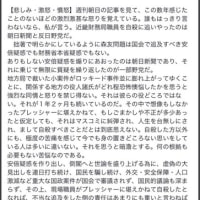
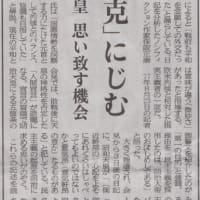
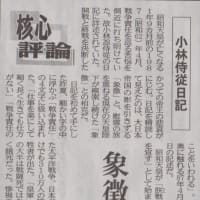
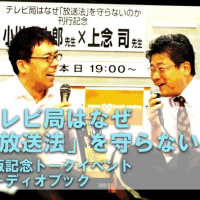
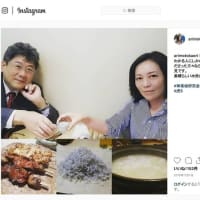
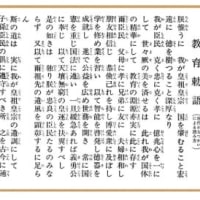


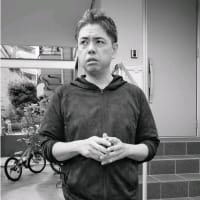
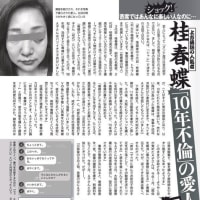
※コメント投稿者のブログIDはブログ作成者のみに通知されます